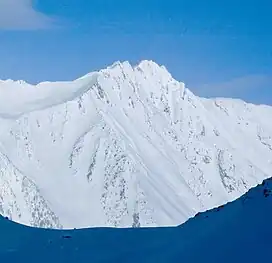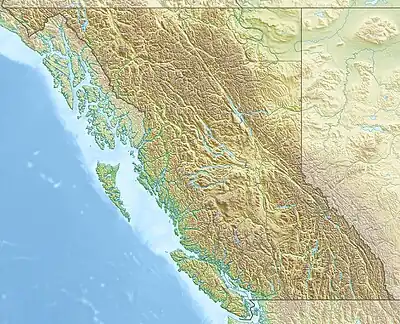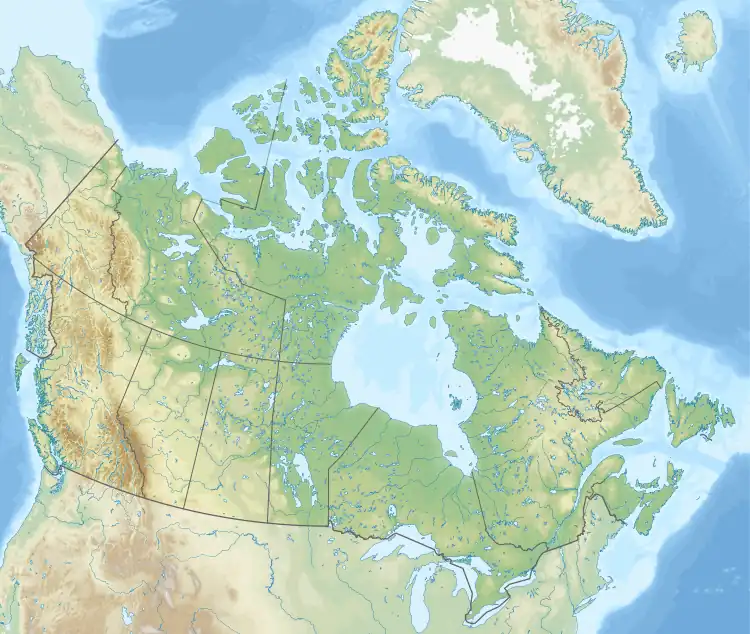| Doubletop Mountain | |
|---|---|
 South aspect | |
| Highest point | |
| Elevation | 2,667 m (8,750 ft)[1] |
| Prominence | 164 m (538 ft)[2] |
| Parent peak | Adamant Mountain (3,345 m)[2] |
| Isolation | 1.3 km (0.81 mi)[2] |
| Listing | Mountains of British Columbia |
| Coordinates | 51°47′37″N 117°52′50″W / 51.79361°N 117.88056°W[3] |
| Geography | |
 Doubletop Mountain Location of Doubletop in British Columbia  Doubletop Mountain Doubletop Mountain (Canada) | |
| Country | Canada |
| Province | British Columbia |
| District | Kootenay Land District[4] |
| Parent range | Adamant Range Selkirk Mountains |
| Topo map | NTS 82N13 Sullivan River[3] |
Doubletop Mountain is a 2,667-metre (8,750-foot) mountain in British Columbia, Canada.
Description
Doubletop Mountain is part of the Adamant Range which is a subrange of the Selkirk Mountains.[4] It is located 84 km (52 mi) northwest of Golden along the west side of the Rocky Mountain Trench. Precipitation runoff and glacial meltwater from the mountain drains to Kinbasket Lake via Swan and Double Eddy creeks. Topographic relief is significant as the summit rises 1,367 metres (4,485 ft) above Double Eddy Creek in 2 km (1.2 mi) and 1,367 metres (4,485 ft) above Swan Creek in 2.5 km (1.6 mi). Doubletop Mountain is located immediately north of the Bill Putnam hut which is one of Canada's best ski mountaineering destinations.[5] The mountain's toponym was officially adopted on March 4, 1965, by the Geographical Names Board of Canada.[3]
Climate
Based on the Köppen climate classification, Doubletop Mountain is located in a subarctic climate zone with cold, snowy winters, and mild summers.[6] Winter temperatures can drop below −20 °C with wind chill factors below −30 °C.
See also
References
- ↑ BC Basemap topograhic map
- 1 2 3 "Doubletop Mountain, Peakvisor.com". Retrieved 2023-09-06.
- 1 2 3 "Doubletop Mountain". Geographical Names Data Base. Natural Resources Canada. Retrieved 2023-09-06.
- 1 2 "Doubletop Mountain". BC Geographical Names. Retrieved 2023-09-06.
- ↑ Chic Scott, Summits and Icefields: Columbia Mountains, Rocky Mountain Books Ltd, 2003, ISBN 9781894765473, p. 54.
- ↑ Peel, M. C.; Finlayson, B. L. & McMahon, T. A. (2007). "Updated world map of the Köppen−Geiger climate classification". Hydrol. Earth Syst. Sci. 11: 1633–1644. ISSN 1027-5606.
External links
- Weather: Doubletop Mountain